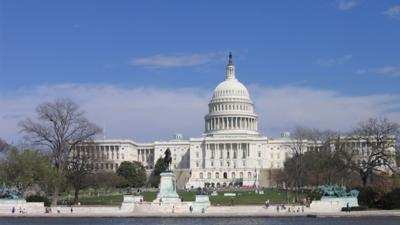Legislation Also Includes Reauthorization And Reforms For TSA And NTSB
House and Senate Committee leaders late last week announced that they have reached a bipartisan final agreement on legislation that provides long-term stability and critical reforms to the FAA and transforms federal disaster programs to better prepare communities for disaster. The agreement also includes a reauthorizations and reforms of the TSA and NTSB.

The legislative text has been filed in the House as H.R. 302 as amended.
The announcement was made by House Transportation and Infrastructure Committee Chairman Bill Shuster (R-PA); House Transportation and Infrastructure Committee Ranking Member Peter DeFazio (D-OR); Senate Commerce, Science, and Transportation Committee Chairman John Thune (R-SD); and Senate Commerce, Science, and Transportation Committee Ranking Member Bill Nelson (D-FL).
“The FAA needs the long-term certainty provided by this bipartisan agreement, and America’s airport infrastructure, air travelers, and innovators across our aerospace industry will benefit from these improvements,” Shuster said. “In addition, this agreement will provide the most comprehensive disaster program reform since the post-Katrina law. I thank my Senate and House colleagues for working to finalize this agreement, and I look forward to passing the bill next week.”
“After several weeks of negotiations, I am pleased that we can announce a bicameral, bipartisan multi-year reauthorization of the FAA. This important legislation provides the FAA with the long-term funding it needs to carry out its safety mission and guarantees that the United States will continue to lead the world in all-things aviation. This legislation also includes critical provisions, many of which I have called on Congress to enact for years, that ensure the safety of our aviation system and that provide protections for the hundreds of millions of U.S. passengers and crewmembers who fly each year. For example, the bill includes a provision I authored that provides a pathway to ensuring safe and secure drone operations. The bill also mandates the first change in 24 years to flight attendants’ rest period, ensuring they receive 10 hours of rest between duty periods and thereby improving aviation safety. And the bill enhances the travel experience for
passengers: It directs the FAA to issue regulations creating minimum dimensions for passenger seats, it prohibits airlines from involuntarily removing passengers from flights after they’ve cleared the boarding gate, and it requires airlines to communicate better with customers during mass flight cancellations and groundings. While this legislation isn’t perfect, it is the product of a strong bipartisan effort that will improve and advance the U.S. aviation system for years to come,” said DeFazio.
“This five-year authorization improves our aviation system for travelers, manufacturers, and innovators,” said Thune. “It also strengthens the overall safety and security of our transportation system. I expect the House and Senate will now move quickly to send the president a bill he can sign.”
“Relief could soon be on the way for weary airline passengers facing smaller and smaller seats,” said Nelson. “Democrats and Republicans from both chambers agree that it is time for the administration to take action on ever-shrinking seats, refunds of fees for services airlines fail to deliver and dignified treatment for passengers with disabilities – and especially our disabled veterans.”
The announced agreement includes the FAA Reauthorization Act of 2018, the Disaster Recovery Reform Act of 2018, a three-year reauthorization of the Transportation Security Administration (TSA), and a four year reauthorization of the National Transportation Safety Board. Also included in H.R. 302 are sports medicine licensure legislation, the BUILD Act of 2018, a requirement for an assessment of the situation in Syria, the Preventing Emerging Threats Act of 2018, and supplemental appropriations for disaster relief.
(Source: House Transportation Committee news release)
 ANN's Daily Aero-Term (05.07.25): Terminal Radar Service Area
ANN's Daily Aero-Term (05.07.25): Terminal Radar Service Area ANN's Daily Aero-Linx (05.07.25)
ANN's Daily Aero-Linx (05.07.25) Classic Aero-TV: Anousheh Ansari -- The Woman Behind The Prize
Classic Aero-TV: Anousheh Ansari -- The Woman Behind The Prize NTSB Prelim: Bell 206B
NTSB Prelim: Bell 206B Airborne-NextGen 05.06.25: AF Uncrewed Fighters, Drones v Planes, Joby Crew Test
Airborne-NextGen 05.06.25: AF Uncrewed Fighters, Drones v Planes, Joby Crew Test



